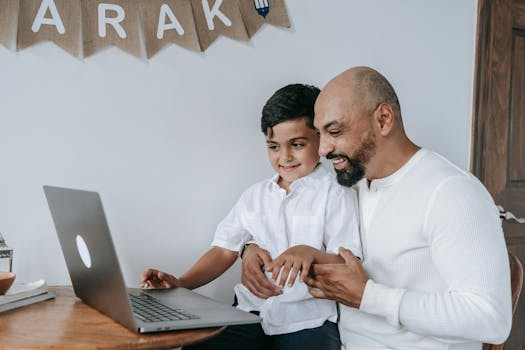The Importance of Teaching Media Literacy in the Digital Age
In today’s digital age, navigating the vast sea of media content can be a daunting task for both adults and children alike. With an endless stream of information available at our fingertips, it has become increasingly important to learn the skills of media literacy. From understanding the credibility of sources to deciphering the hidden agendas of advertisers, media literacy is an essential tool for critical thinking and decision making in the digital world. This article will delve into the importance of teaching media literacy in the current age and how it can benefit individuals and society as a whole.
The Role of Media Literacy in the Digital Age
Media literacy is the ability to access, analyze, evaluate, and create media in various forms. It involves understanding the purpose, message, and potential effects of media content. In today’s fast-paced and digitized society, media is constantly bombarding us with information, making it vital to have the necessary skills to navigate through it.
In the past, media was limited to traditional sources such as newspapers, TV, and radio. However, with the rise of social media and technology, the media landscape has evolved drastically. The prevalence of fake news, manipulation of information, and online scams has made media literacy a crucial skill to possess. Without it, individuals can easily fall prey to misinformation and manipulation, leading to detrimental consequences.
The Growing Need for Media Literacy Education
With the rapid developments in media and technology, it has become necessary to incorporate media literacy education in schools and communities. As children are exposed to media at a younger age, it is crucial to equip them with the skills to navigate through it effectively. By teaching media literacy, children can learn to recognize the various forms of media, understand their messages, and critically analyze their content.
Moreover, media literacy education can also help combat the spread of fake news and misinformation. According to a survey by the Pew Research Center, 64% of adults believe that fake news is causing significant harm to the country. By teaching individuals how to assess the credibility of sources and fact-check information, media literacy can help mitigate the negative effects of false information.
The Benefits of Media Literacy
Media literacy education goes beyond just understanding the media landscape. It can also have a positive impact on various aspects of an individual’s life. With the ability to critically analyze media, individuals can make more informed decisions and develop a stronger sense of self-awareness. They can learn to recognize the media’s influence and how it may shape their beliefs and values.
Furthermore, media literacy also encourages creativity and expression. By learning how to create media, individuals can share their thoughts and ideas with the world, promoting self-expression and communication. This can also lead to the development of digital skills that are becoming increasingly necessary in today’s job market.
In Conclusion
In conclusion, media literacy has become an essential skill to navigate the digital age. By teaching individuals how to access, analyze, evaluate, and create media, we can empower them to make more informed decisions and combat the negative effects of media manipulation. With media literacy education, we can create a society that is equipped to handle the complexities of the digital world and promote critical thinking and creativity.
References:
“What Americans Know About Fake News.” Pew Research Center, Pew Research Center, 18 July 2019, www.pewresearch.org/fact-tank/2019/07/10/just-47-of-u-s-adults-say-they-get-enough-of-the-science-news-they-need/.
“Introduction to Media Literacy.” National Association for Media Literacy Education, namle.net/publications/introduction-to-media-literacy/.






